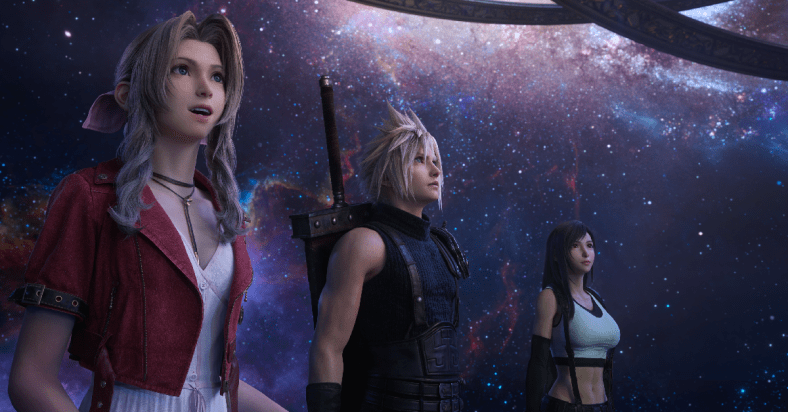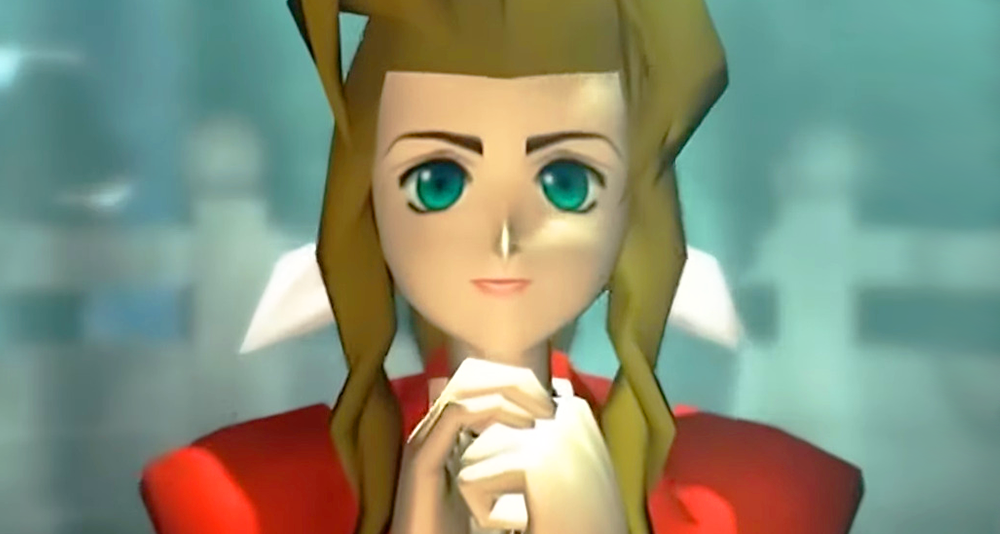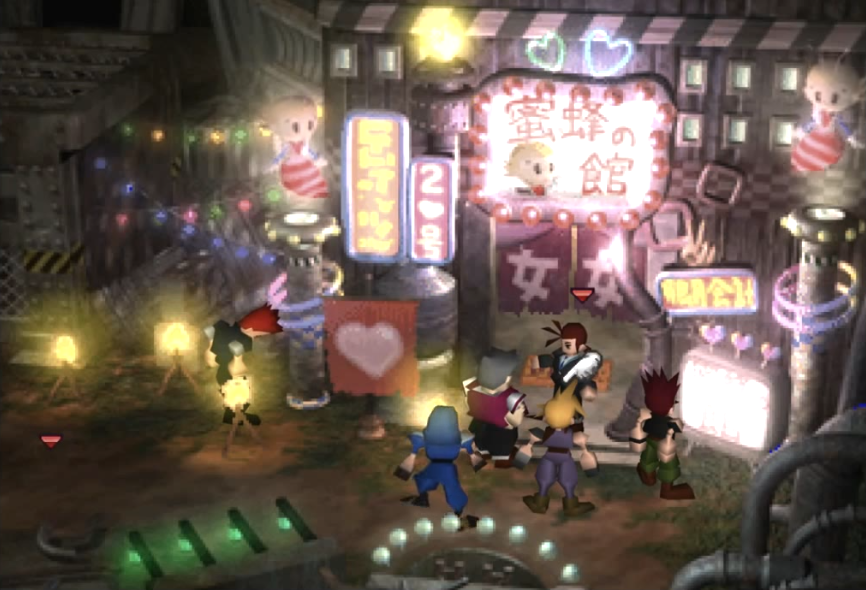‘Final Fantasy VII Rebirth’ Producer Yoshinori Kitase Says He’s “A Bit Embarrassed” By Original Game’s Portrayal Of “Social Problems, Social Issues, And Cultural Depictions”

Yoshinori Kitase, producer of Final Fantasy VII Rebirth, is “embarrassed” how the original game he directed handled social issues and cultural depictions.

Some of those who worked on Final Fantasy VII recently spoke to Game Informer’s Brian Shea. Kitase was that game’s director and writer alongside Kazushige Nojima — based on the story by series creator Hironobu Sakaguchi and Tetsuya Nomura.
The team discussed how that game started Final Fantasy titles being created in the modern way. While individuals could throw in elements on a whim with Final Fantasy VI and prior, it would be Final Fantasy VIII that saw the team begin to use more ridged plans and compartmentalizing.
Nomura explained how Final Fantasy VII was a mix between the two extremes, though people could sneak lines into the script without being noticed. Kitase adds that Nojima was the “final reviewer” of the game’s story content, even though “it was sort of an ‘anything goes’ type of world then.”

Kitase also discussed how the game handled real world issues back in 1997 — Shea giving examples of corporate greed, environmentalism, and mental health. “In Final Fantasy VII, we were able to depict these types of issues, like the cycle of life, through the concept of Lifestream.”
“If we were to depict it exactly as we experience it in the real world, it would not be very interesting. With Nojima-san’s ideas, we were able to have this centered on Lifestream and the planet within the worldview of Final Fantasy VII. In this way, I believe the game and its themes remain relevant and withstand the test of time,” Kitase praised.

RELATED OPINION: Scorched Earth – The Left’s Final Culture War Tactic
Despite having just declared the game was “standing the test of time,” Kitase followed up with how he was disappointed with Final Fantasy VII. “Considering the way to depict social problems, social issues, and cultural depictions, in some ways, I am a bit embarrassed by the original title.”
“In its expression, in some ways, it was very young and naive in itself. That is a learning for us, but at the same time, I do believe that perhaps that is one of the reasons why it was so widely accepted,” Kitase relents. “It’s not perfect, and it’s kind of uneven and jagged in its young and naive nature of its depiction. Of course, after [more than] 25 years, there is a lot of personal learning, changes, and growth.”
“But looking back on it, some parts of it, I am a bit embarrassed,” he admitted.

The offending elements within Final Fantasy VII weren’t elaborated by Kitase, but can be speculated due to modern mainstream media typically being held under extreme scrutiny to avoid offense and political correctness. Square Enix is also familiar and accepting of this, as Final Fantasy VII Remake had Tifa Lockhart’s chest “tightened” by the “ethics department.”
The company later explained the department’s job was to ensure the game met expected age ratings in various nations, and effectively acted like localization to avoid content that could be deemed “discriminatory, prejudicial, or offensive” in any nation, right from initial development in Japan.

RELATED INTERVIEW: ‘Kengan Ashura’ and ‘Kengan Omega’ Mangaka Daromeon Weighs In On AI Localization Debate, Says It Will “Take Some Time” Before More Publishers Adopt Technology
As first, the social problems would seem acceptable. The plot’s pro-environmental, anti-capitalist, anti-oligarchy, and anti-expansionist ideals should be approved by the typically left-leaning major gaming press and media critics.
Those seeking offense could wrongly assume the characters Barret Wallace and the aforementioned Tifa were merely a racist stereotype and fan service, respectively. However, that would require extreme overreach of the definitions, and ignoring both characters’ rich story arcs.
Barret may share some of the characteristics of other black characters found in ’80s and ’90s action media — short-tempered and boastful, for example — yet is a loving father who learns that his actions as a terrorist only hurt people more than his target of Shinra. Likewise, Tifa is far from a bimbo — being caring and independent even while under the burden of guilt.

Instead, the scenes most likely to cause offense are the ones of a sexual nature, and depictions of women. Tifa’s large chest aside, Final Fantasy VII features a brothel, flirtatious and suggestive comments, and female characters slapping one-another in a cat-fight.
There are also scenes of female characters being rescued — with the ‘damsel in distress’ trope now deemed outdated and offensive no matter the context — and even being threatened with experimental breeding (with the method of insemination thankfully never specified).
Cid Highwind — at one of his lowest points — is also seen belittling his guilt-ridden assistant and love-interest, Shera.

The scenes most likely to be deemed offensive are the ones that were censored in Final Fantasy VII Remake. Namely, the events during and shortly after the Honey Bee Inn brothel, changed to be from a “gender free perspective.”
While you can find the full details in our coverage, players of the original game witnessed cross-dressing, stereotypically gay men who seemingly didn’t take ‘no’ for an answer, and crime boss Don Corneo taking advantage of his position by finding nightly “brides” who are disposed of afterwards.
Taking “modern sensibilities into consideration,” the brothel is now a nightclub, the muscular men are now far less predatory and more focused on gains, and the entire cross-dressing sequence is framed more as a matter of pride and gender-free beauty. Nonetheless, the Don’s abuse remains, and the nightclub has private rooms with suggestive activities.

It should also be considered Square Enix continues to censor sexual content when remaking games or bringing them over to the west. Recently, this includes Dragon Quest Monsters 3 and Final Fantasy XVI. Yet sticking to western sensibilities and ‘social issues’ saw the latter banned in Saudi Arabia, after Square Enix refused to censor the game’s LGBT content.
Final Fantasy VII Rebirth will seemingly continue the trend that Remake set. The game’s release date trailer reveals that the dancers and owner of the Honey Bee Inn are seemingly now at the Gold Saucer, bringing a crotch-grabbing dance routine that is sure to continue the owner’s vision of beauty and identity-positivity.

Returning to the interview, not everyone agreed with Kitase on Final Fantasy VII being embarrassing. Event Planner Motomu Toriyama was noted as having no regrets, stating, “At any given era or time, we always strive to put our best foot forward, and we had utilized the best game specs at any given time, whether it had to be the original or today.”
“So, even with the original Final Fantasy VII title, there were no regrets or feelings that there was more that we wanted to do or something I had regretted not doing; we truly put in our best efforts,” Toriyama defended.

For better or worse, a recent interview with IGN saw Final Fantasy XVI producer Naoki Yoshida musing that “maybe it’s time for someone new, you know. Instead of having the same old guys handle the next one.”
NEXT: OPINION: Western Localizers Have Deluded Themselves Into Believing They’re Actual Creators
More About:Video Games
